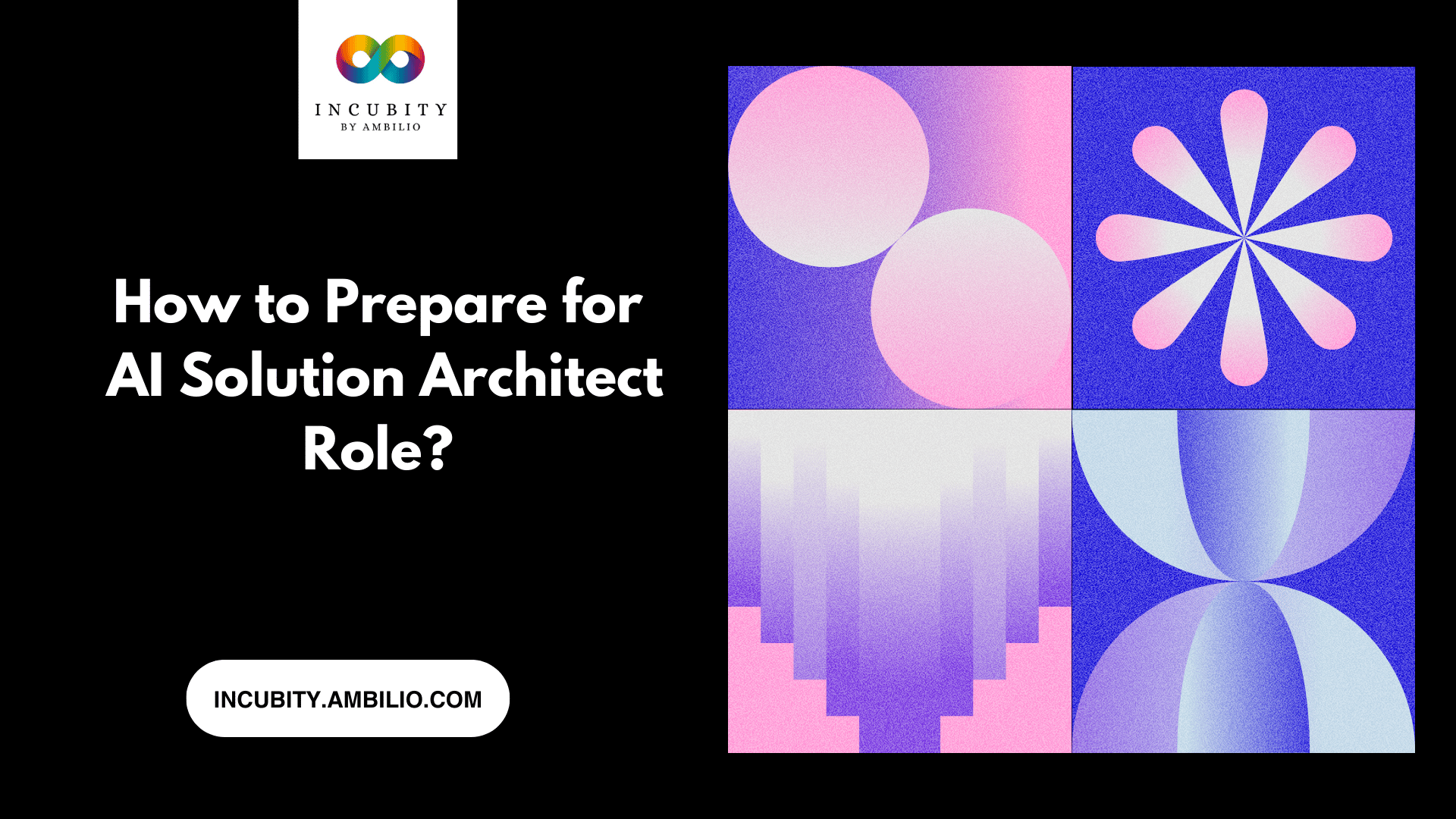The role of an AI Solution Architect is pivotal in shaping and deploying AI-driven solutions that align with an organization’s strategic objectives. With the rise of generative AI and LLMs, this is one of the most in-demand roles in artificial intelligence today. This position demands a unique blend of technical prowess, strategic thinking, and leadership capabilities. Here, we provide a curated guide to help you grasp the intricacies of this role and prepare effectively. Whether you are advancing from a technical background or aiming to specialize in AI architecture, this guide covers essential educational paths, technical skills in programming and AI frameworks, and crucial non-technical skills like communication and project management.
Educational Background
Acquire a Strong Educational Foundation
A solid educational background is crucial for an AI Solution Architect. Typically, this involves a bachelor’s degree in computer science, data science, artificial intelligence, or a related field. Advanced degrees, such as a master’s, can provide a competitive edge and deeper knowledge in specialized areas of AI.
Relevant Coursework
Focus on courses that cover machine learning, deep learning, natural language processing (NLP), data structures, algorithms, and cloud computing. Hands-on projects and research work during your academic career will also enhance your practical understanding and problem-solving skills.
Technical Skills for AI Solution Architect Role
Master Programming Languages
Proficiency in programming languages is essential. Python is the most widely used language in AI due to its simplicity and powerful libraries like TensorFlow, PyTorch, and Keras. Knowledge of Java, C++, or other programming languages is also beneficial as they are commonly used in large-scale systems.
Expertise in AI and ML Frameworks
Understanding and experience with AI frameworks are critical. Familiarize yourself with machine learning and deep learning frameworks such as TensorFlow, PyTorch, and Keras. Experience with generative AI techniques and frameworks like Langchain and LlamaIndex will also be highly valuable.
Knowledge of LLM Architecture
Experience in large language models (LLMs) is increasingly important. This includes understanding LLM architecture, embeddings, vector databases like MongoDB, CosmosDB, and Qdrant, and techniques for fine-tuning and hosting LLMs.
Cloud Computing Proficiency
AI Solution Architects need to be adept at using cloud platforms like AWS, Azure, and Google Cloud. Understanding how to deploy AI models on these platforms and utilizing their services for development and deployment is crucial.
DevOps and MLOps Skills
Knowledge of DevOps practices, continuous integration, and automated deployment pipelines is essential for maintaining efficient workflows. MLOps (Machine Learning Operations) is particularly important for managing the machine learning lifecycle, ensuring models are robust, scalable, and continuously improved.
Data Management and Processing
A strong grasp of data management, including data lakes, data warehouses, and relational database management systems (RDBMS), is necessary. Experience in data collection, preprocessing, labeling, augmentation, and storage will support AI model training and deployment.
Non-Technical Skills
Problem-Solving and Analytical Skills
AI Solution Architects must have excellent problem-solving and analytical skills. This involves breaking down complex problems into smaller, actionable tasks and developing solutions that are efficient and effective.
Strong Communication and Teamwork
Effective communication skills are vital for explaining complex technical concepts to non-technical stakeholders. Collaboration with cross-functional teams, including data scientists, data engineers, developers, and business stakeholders, is essential for integrating AI solutions seamlessly into business operations.
Leadership and Mentorship
Experience in leading and mentoring technical teams is crucial. AI Solution Architects are often responsible for guiding junior team members, conducting code reviews, and influencing technical decision-making within the team.
Key Responsibilities for AI Solution Architect Role
Design and Develop AI Solutions
AI Solution Architects design and develop AI/ML solutions that meet business needs. This includes translating business requirements into technical specifications and selecting appropriate AI technologies and frameworks.
Build and Maintain AI Pipelines
Develop and maintain AI pipelines that incorporate data cleaning, preprocessing, feature engineering, model training, and validation processes. Ensuring these pipelines are efficient and scalable is a key responsibility.
Deploy and Monitor AI Models
Deploy AI models into production environments and design monitoring plans to ensure they operate reliably and accurately. Collaboration with DevOps teams to oversee smooth deployment and maintenance of AI systems is essential.
Stay Updated with AI Advancements
Continuously update your knowledge of the latest advancements in AI technologies, frameworks, and methodologies. This will help you to identify new opportunities for applying AI within your organization and drive continuous improvement initiatives.
Certifications and Continuous Learning
Obtain Relevant Certifications
Certifications can validate your skills and knowledge in AI, cloud computing, and DevOps. Consider certifications such as AWS Certified Machine Learning – Specialty, Microsoft Certified: Azure AI Engineer Associate, and Google Cloud Professional Machine Learning Engineer.
Engage in Continuous Learning
The field of AI is rapidly evolving. Engage in continuous learning through online courses, workshops, webinars, and conferences. Platforms like Coursera, edX, and Udacity offer specialized courses in AI and machine learning.
Practical Experience
Gain Hands-On Experience
Hands-on experience is crucial for building practical skills. Work on projects that involve developing and deploying AI models, handling large datasets, and integrating AI solutions into existing systems. Internships, co-op programs, and research projects can provide valuable experience.
Document Your Work
Document your AI architectures, design decisions, and technical specifications. This not only helps in knowledge sharing but also demonstrates your ability to create detailed, comprehensive documentation, which is a valuable skill for any AI Solution Architect.
Final Words
Preparing for an AI Solution Architect role requires a strategic combination of education, technical skills, non-technical skills, and practical experience. By focusing on a strong educational foundation, mastering essential technical skills, and continuously updating your knowledge, you can position yourself for success in this dynamic and rewarding field. Embrace the journey of learning and growth, and you’ll be well-equipped to tackle the challenges and opportunities that come with being an AI Solution Architect.



